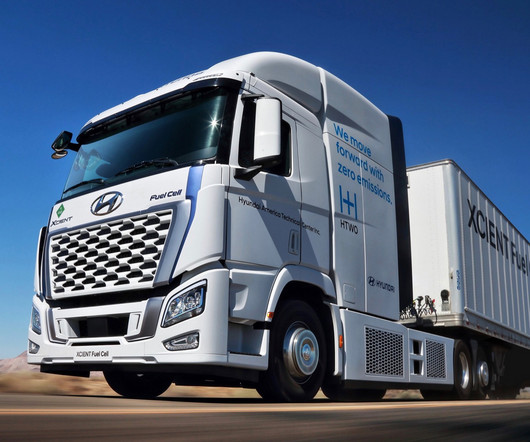ARPA-E awards $42M to 12 projects for advanced EV batteries; EVs4ALL program
Green Car Congress
JANUARY 11, 2023
The US Department of Energy (DOE) will award $42 million to 12 projects to strengthen the domestic supply chain for advanced batteries that power electric vehicles (EVs). South 8 Technologies will develop high-power Li-ion battery cells with the capacity to charge rapidly using a novel liquefied gas (LiGas) electrolyte technology.


















Let's personalize your content